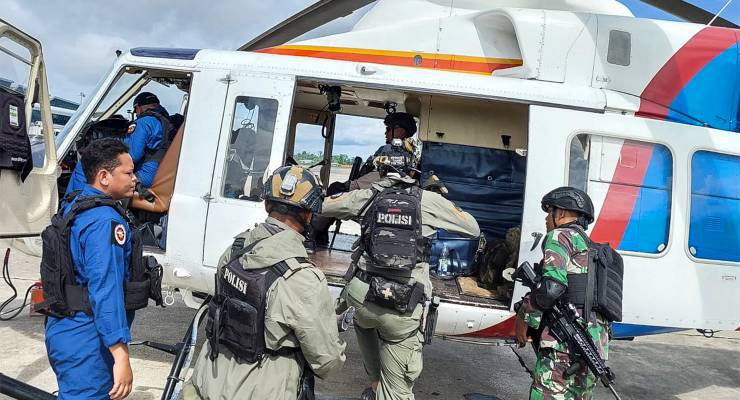
Separatists in Indonesia’s easternmost area of West Papua have taken guerrilla warfare to another level by kidnapping a New Zealand pilot in the rugged mountainous terrain of Nduga. History suggests this desperate bid to win some autonomy from Jakarta will not end well.
A separatist attack in 2018, in the same mountainous regency of Nduga — one of the poorest in the country — brought the full fury of Indonesia’s military down on villagers’ heads after separatists kidnapped and killed at least 17 road construction workers. In retaliation, the military flew in several hundred troops, razed villages and displaced many thousands of locals. At least 180 subsequently died in refugee camps.
More recently, in July last year, rebels in Nduga shot dead at least 11 civilians, an attack followed a month or so later by the discovery of two sacks filled with various body parts of four Indigenous Papuans.
Despite using often brutal tactics, Indonesia’s massive and cumbersome military forces have failed to stamp out pockets of stubborn resistance in West Papua over the years, and Jakarta’s long-term effort to subdue the province by shipping in large numbers of non-Indigenous Indonesians has bred simmering resentment. Indigenous Papuans are predominantly Melanesian and Christian, unlike the influx of racially different Muslim newcomers, many from Java and Madura, who now outnumber locals in many districts.
The Indigenous people of the resource-rich province remain largely poor and poorly served by Indonesia, and the decision to carve West Papua into first two and now five separate provinces has been viewed with suspicion by locals and widely considered as an attempt to increase Jakarta’s already overarching power.
This week’s kidnapping of a foreigner has upped the stakes. When pilot Philip Mehrtens safely landed Susi Air’s small propeller plane at an airport in the mountainous district of Nduga on Tuesday morning, insurrectionists from the West Papua National Liberation Army (TPNPB) — considered a terrorist organisation by Jakarta — seized the plane, set it on fire and took Mehrtens hostage. The five passengers, all reportedly of Indigenous descent, were set free.
It then transpired that Nduga authorities had told the police on Saturday that 15 construction workers who were building a health centre in Paro village had been taken hostage by rebels.
Separatist spokesperson Sebby Sambom took to Facebook to warn of the dire consequences for the pilot if Jakarta refused to negotiate on independence for West Papua.
“If Jakarta is obstinate, then pilot will be executed to death,” he wrote in the post.
“Later we from the management of the TPNPB-OPM Central Headquarters will monitor. We will take the New Zealand citizen pilot as hostage and we are waiting for accountability from the Australian government, the New Zealand government, the European Union governments, and the United Nations, because for 60 years these countries have supported Indonesia to kill Indigenous Papuans.”
It’s now feared the Indonesian military, rarely known for its finesse, will be tempted to rush in, guns blazing, in a dangerous bid to liberate Mehrtens. Troops have already been dispatched to search for him. The New Zealander and the hostage construction workers could be killed in crossfire or hauled further into the mountainous territory to thwart Jakarta.
West Papua has been troublesome for Jakarta for decades. Most of Indonesia became independent after the Dutch colonisers left in 1949. But West Papua, which adjoins Papua New Guinea, remained Dutch until the early 1960s when authority was transferred to Indonesia, which promised a so-called Act of Free Choice: a UN-supervised ballot on independence.
In 1969, just over 1000 Papuans hand-picked by Jakarta chose to keep the province within Indonesia. The vote was accepted by much of the world, but it is disputed by many Indigenous Papuans who continue to insist independence.
Indonesia researcher for Human Rights Watch Andreas Harsono told CNN seizing hostages was a crime.
“The National Liberation Army for West Papua should immediately and unconditionally release all hostages in Nduga,” he said.








West Papua, another tragic place because they were sold down the river by the UN, having been rooted by Europe. Even I, such an optimist, can’t see lik lik hope.
Strange how our politicians, ASPI and the media are always outraged at what happens in distant Xinjiang yet completely quiet on what happens in our nearest neighbour.